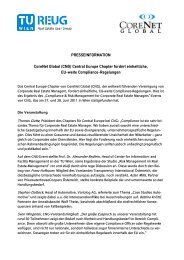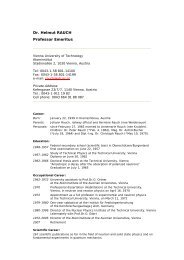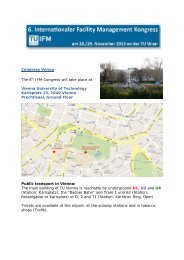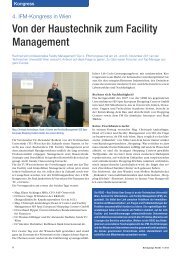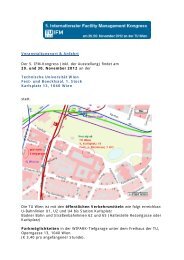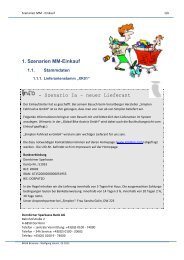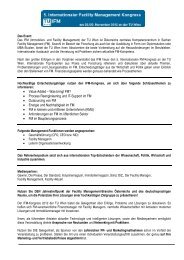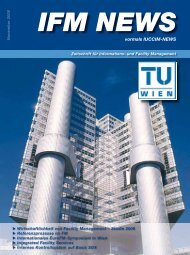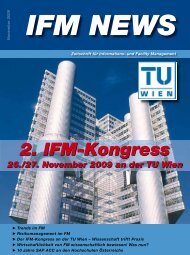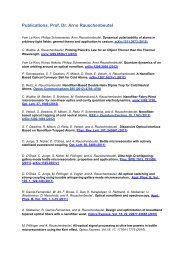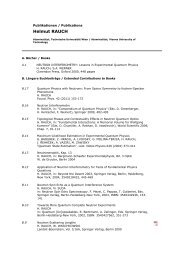Informal Market Worlds - Institute TU Wien
Informal Market Worlds - Institute TU Wien
Informal Market Worlds - Institute TU Wien
You also want an ePaper? Increase the reach of your titles
YUMPU automatically turns print PDFs into web optimized ePapers that Google loves.
A two‐day research forum on the trading places of urban informality, co‐organized by the University ofHong Kong’s Shanghai Study Centre and the FWF Science Fund research project Other <strong>Market</strong>sINFORMAL MARKET WORLDS IIabstracts and biosPascal Berger, University of Hong Kong, Shanghai Study CentreBorn in Basel, Switzerland; he studied architecture at the ETH in Zurich, where he got his master degree.Pascal was working for Diener & Diener in Basel, Franz Oswald in Berne and mada s.p.a.m. in Shanghai.He is a founding partner of playze Switzerland and playze China and is currently living in Shanghai.Since 2009, Pascal has been teaching at the University of Hong Kong’s Shanghai Study Centre. He holdsthe position of academic director.Helge Mooshammer + Peter Mörtenböck, <strong>TU</strong> Vienna & Goldsmiths College, University of London<strong>Informal</strong> <strong>Market</strong> <strong>Worlds</strong>Recent practices in art and architecture reveal a widespread interest in informality, which is oftenpraised for its resourcefulness and ingenuity, its flexibility and improvisation, as well as its colourful andcreative appeal. However, when it comes to concrete terms of engagement, the most commonresponses to informal urbanism tend to centre on questions of improvement. In this sense, therelationship between architecture and informality seems to be a more or less clearly defined oneinvolving the offer of expert support to help raising the living standards of the world’s poor.In our introduction to this research meeting we will raise the question what is really at stake in therelationship between the profession of architecture and urban planning and the growing realm ofinformality: What value systems, economic and political interests are impinging on this process?Helge Mooshammer is Director of the Austrian Science Fund (FWF) research projects Other <strong>Market</strong>s(2010‐2013) and Relational Architecture (2006‐2009) at the School of Architecture and Urban Planningat Vienna University of Technology and Goldsmiths College London. His research focuses on new formsof urban sociality fuelled by processes of transnationalisation, temporary and informal land use and newforms of government. In 2008 he was Research Fellow at the International Research Center for CulturalStudies (IFK) Vienna. He has been teaching, amongst others, at the Linz University of Art, at the MerzAcademy Stuttgart and at Goldsmiths College, University of London.His most recent books include: Networked Cultures: Parallel Architectures and the Politics of Space, (ed.with Peter Mörtenböck) Rotterdam: NAi Publishers, 2008 and Space (Re)Solutions: Intervention andResearch in Visual Culture, (ed. with Peter Mörtenböck) Bielefeld: transcript, 2011.Peter Mörtenböck is Professor of Visual Culture at the Vienna University of Technology and ResearchFellow in the Department of Visual Cultures at Goldsmiths, University of London, where he has initiatedthe Networked Cultures project (www.networkedcultures.org), a global research platform focusing ontranslocally connected spatial practices. His current research projects, including amongst others Other<strong>Market</strong>s (2010‐2013), Sea of Marble (2010‐2011) and Supply Lines (2011‐2014), investigate the potential




